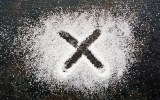


It’s time to introduce a sugar tax in Australia to recover the millions of taxpayer dollars lost to obesity, a think tank will tell the government.
A Grattan Institute report, to be presented to federal parliament in Canberra on Wednesday, recommends a sugar content tax of 40 cents per 100 grams of sugar on water-based, non-alcoholic sugar-sweetened beverages (SSBs).
This would raise $520 million in tax revenue in 2017 and the cost to the consumer would be minimal, says Grattan Institute health program director Stephen Duckett.
Grattan Institute researchers estimate the average cost of a two litre bottle of soft drink would increase by about 80 cents as a result of the recommended sugar tax.
It’s also estimated a sugar tax would lead to a 15 per cent drop in the consumption of SSBs.
While “regressive”, this would recover the cost of obesity and benefit the health of Australians, Mr Duckett said.
“We estimate sugar sweetened beverages account for about 10 per cent of the causes of obesity, so what we are aiming to do is in a sense recover the costs of obesity,” he said.
There’s been a dramatic increase in obesity over the past 25 years, with one in four Australian adults now considered obese and about 7 per cent of children obese.
People are eating more but are doing less activity.
In addition to the costs that fall on obese people themselves, there are “enormous” costs to taxpayers.
“Obese people use more GPs, they go to hospital more frequently, they use more medications, they are more likely to be on social service payments and they work less,” Mr Duckett said.
The Grattan report says this burden equals $5.3 billion each year.
Jurisdictions around the world are introducing taxes on sweetened beverages to lessen the costly impact of the obesity epidemic.
Thirteen countries including Belgium, France and Fiji have imposed a sugar tax with another four jurisdictions announcing plans for a tax by 2018. Mr Duckett is calling on the Australian government to follow suit.
“The revenue raised by the new tax could go to reducing the budget deficit, promoting healthier eating, treating obesity, or a variety of other purposes,” he said.
“Most importantly, a tax on SSBs would help to ensure that the producers and consumers of those drinks start paying closer to the full costs of this consumption, including costs that to date have been passed on to other taxpayers,” the report says.
– AAP











